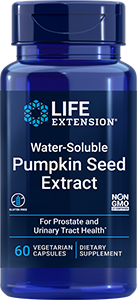 | October 3, 2008 | | | | An article published in the latest issue of the journal Nutrition and Cancer (volume 60, issue 5) revealed the finding of Korean researchers of a protective effect of soy on the risk of developing breast cancer. The study’s conclusion supports that of previous research concerning soy’s effect on breast cancer risk. Scientists at Hanyang University in Seoul, Korea compared 362 women diagnosed with breast cancer with an equal number of healthy women matched for age and menopausal status. Participants were interviewed concerning their diets, which included tofu, soybean paste, boiled soybeans and soy milk. Total soy protein intake was used as a measure of total soy food consumption. Compared with women who did not have breast cancer, those who were diagnosed with the disease were likelier to consume more carbohydrates and less likely to drink alcohol or use multivitamin supplements. Women with breast cancer also had fewer children. High soy protein intake was associated with a reduced risk of breast cancer. Among premenopausal women whose intake of soy protein was among the top 20 percent of participants, there was a 61 percent lower adjusted risk of breast cancer compared with those in the lowest 20 percent. For postmenopausal women, the risk experienced by the highest soy protein intake group was 78 percent lower, although the dose-response relationship observed in premenopausal women was not noted in this group. When tofu consumption was separately analyzed, it emerged as protective for premenopausal women only, with those in the top fifth of tofu intake having a 77 percent lower risk of breast cancer than those in the lowest. Isoflavones contained in soy may effect the development of breast cancer by competing with the body’s own estrogens in binding to estrogen receptors. They may also lower breast cancer risk by increasing sex hormone binding globulin, which reduces blood estrogen levels. Additionally, research suggests that soy isoflavones may inhibit the aromatization of circulating androgens to estrogens in postmenopausal women. Furthermore, there is evidence that soy protein (without isoflavones) can suppress the development of mammary cancer in an animal model. Isoflavones may work in conjunction with soy protein to exert the benefits associated with soy intake. The researchers recommend their results be interpreted with caution, due to the controversy that exists concerning soy’s possible effects on breast cancer. Nevertheless, the present study’s findings could help support the use of soy as one component of a health-promoting diet. “Our findings, if confirmed, can provide a dietary guideline for the prevention of breast cancer,” the authors conclude. | |  |  | | Cancerous tumors in the breast usually grow slowly. It is thought that by the time a tumor is large enough to be felt as a lump, it may have been growing for as long as 10 years. This has lead to the belief that undetectable spread of tumor cells (micrometastasis) may have already occurred by the time of the diagnosis. Therefore, preventive measures such as a healthy balanced diet and lifestyle, nutritional supplementation, and exercise are of primary importance against the development of cancer. Early diagnosis is the best way to reduce the risk of dying from breast cancer. This can be accomplished by monthly self-breast exams, annual clinical breast exams and screening mammography. If breast cancer is detected, a multimodality approach incorporating nutritional supplementation, dietary modification, detoxification, and one or more of the following may be considered: surgery, chemotherapy, radiation, hormone therapy, or vaccine therapy. One of the most important supplements for a breast cancer patient is the hormone melatonin. Melatonin inhibits human breast cancer cell growth (Cos et al. 2000) and reduces tumor spread and invasiveness in vitro (Cos et al.1998). Indeed, it has been suggested that melatonin acts as a naturally occurring anti-estrogen on tumor cells, as it down-regulates hormones responsible for the growth of hormone-dependent mammary tumors (Torres-Farfan 2003). A high percentage of women with estrogen-receptor-positive breast cancer have low plasma melatonin levels (Brzezinski et al. 1997). There have been some studies demonstrating changes in melatonin levels in breast cancer patients; specifically, women with breast cancer were found to have lower melatonin levels than women without breast cancer (Oosthuizen et al. 1989). Normally, women undergo a seasonal variation in the production of certain hormones, such as melatonin. However, it was found that women with breast cancer did not have a seasonal variation in melatonin levels, as did the healthy women (Holdaway et al. 1997). | Life Extension magazine October, 2008 issue now online! 
Departments: Scientific abstracts: | |  |   | | Life Extension’s new Vascular Protect™ is a multinutrient formula designed to provide well-tolerated broad-spectrum support for the heart. Each of the three active ingredients in this unique preparation has been scientifically standardized to ensure optimum potency: - AmlaMax® is a patent-pending extract of Indian gooseberry fruit. It contains a diverse blend of phenolic compounds that have been clinically shown to safely support healthy levels of cholesterol, triglycerides and markers of inflammation such as C-reactive protein (CRP). Studies have also shown that amla extract helps to induce rapid and significant improvement in endothelial function.
- SproutGarden® Heart Proprietary Blend contains key vegetable extracts that are rich in quercetin, which helps support healthy high-density lipoprotein (HDL) levels. Quercetin also upregulates an enzyme called paraoxonase-1, low levels of which compromise the integrity of vascular walls.
- SproutGarden® Antioxidant Proprietary Blend is an antioxidant-rich nutritive formula. This novel preparation beneficially facilitates the critical process of reverse cholesterol transport by inhibiting a pro-atherogenic enzyme called cholesteryl ester transfer protein.
| | |   | | Aging individuals frequently encounter a weakening of the bladder and its sphincter muscle that controls the release of urine. Laboratory and human clinical studies demonstrate that ingestion of water-soluble pumpkin seed extract can significantly improve the structural support of the bladder and the function of the sphincter muscle. The pumpkin seed has a long history of use in helping to maintain healthy bladder function. Japanese scientists have patented a method to obtain the water-soluble constituents of the pumpkin seed, which are absorbed far more efficiently into the bloodstream. These water-soluble pumpkin seed extracts appear to be the active constituents which help with the urinary discomforts endured by so many maturing women and men. Based on the remarkable and consistent clinical results, Life Extension is making the identical Japanese formula used in the human studies available to its members for the first time. | | | |  | | Life Extension Update | | What's Hot | | Life Extension magazine | |
















